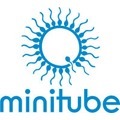 Through the auspices of the International Congress of Animal Reproduction (ICAR), Minitube International, a science-driven biotechnology company, is sponsoring the 3rd Simmet Prize in Assisted Reproduction. The award, which recognizes the scientific advances in assisted reproduction pioneered by Dr. Ludwig Simmet, founder of Minitube, recognizes an active research scientist for outstanding basic and applied research published during the previous six years in the area of assisted reproductive technologies for animal production systems. The Simmet Prize, which comes with a 50,000 euro honorarium, is the largest of its type in the world and is presented every four years at the ICAR meeting. Previous awardees were Cesare Galli (2008) and John Aitken (2012).
Through the auspices of the International Congress of Animal Reproduction (ICAR), Minitube International, a science-driven biotechnology company, is sponsoring the 3rd Simmet Prize in Assisted Reproduction. The award, which recognizes the scientific advances in assisted reproduction pioneered by Dr. Ludwig Simmet, founder of Minitube, recognizes an active research scientist for outstanding basic and applied research published during the previous six years in the area of assisted reproductive technologies for animal production systems. The Simmet Prize, which comes with a 50,000 euro honorarium, is the largest of its type in the world and is presented every four years at the ICAR meeting. Previous awardees were Cesare Galli (2008) and John Aitken (2012).
The Awards Committee will consider the significance of research areas under investigation, the breadth and depth of the research platform, the degree of originality of the research as documented in publications, and potential impact of the research contributions for animal reproduction. Scientists at all phases of their career (early, mid- and late) will be considered. Scientists and industry professionals throughout the world are encouraged to nominate individuals for consideration of the Simmet Prize for Assisted Reproduction.

The Simmet Prize will be presented at the 18th International Congress of Animal Reproduction, June 26-30, 2016 in Tours, France. Note that awardees are expected to provide a manuscript to be published in conjunction with the proceedings of the ICAR meeting.
Award Criteria
1. Originality of Research – among the criteria considered will be the degree to which the nominee is: a pioneer in the development of novel and significant areas of knowledge to assist in propagation of animal species; independently developed new knowledge that has served as a technological platform to enhance efficiency of animal reproduction; a developer of reproductive technology which is close to application or being used in animal reproduction.
2. Experimental Approach – the degree to which the nominee: formulated novel questions and hypotheses; developed pioneering and superior experimental methodologies; utilized experimental designs and approaches that permitted development of significant conclusions and concepts; and communicated research results to the scientific community and end users.
3. Leadership – accomplishments with respect to: providing leadership to team research endeavors; recognition by scientific peers as evidenced by contributions to scientific societies, invitations to participate in scholarly activities and service to society; sharing of research experience willingly and unselfishly with the international scientific community provision of advice and sharing of techniques, technology and reagents.
The nomination process is straightforward. Nominators should assemble the nominee's portfolio for nomination to include:
a) Curriculum vitae consisting of professional positions held, honors received, peer-reviewed papers and reviews published over the last 6 years, and documentation of channels used for technology transfer in reproduction (courses, websites, etc.).
b) A letter of nomination that captures the nominee’s contributions in research, novel approaches, leadership, and impact on assisted reproduction community through potential use or current application to reproductive technologies.
c) Two supporting letters from scientific peers.
May 13, 2015 - Minitube


